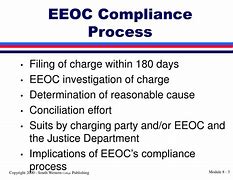Below is a review of the posts (on Facebook, LinkedIn, and Twitter) from the past week. You can check out the full posts by clicking on the links.

to conform to bostock decision
In the post on Sunday 7/11/21 we had a reminder: update handbook, policies to include sexual orientation and gender identity. You know that a little over a year ago SCOTUS held in the landmark civil rights case Bostock v. Clayton County that Title VII’s protections extend to the LGBT community, right? And that the Court’s decision interprets Title VII’s “on the basis of sex” language to include sexual orienta-tion and transgender status. So why do you as an employer or employee care? Because now certain types of discrimination – adverse action – by an employer is illegal. See the post for the types of discrimination that are covered. So, employers should review and revise their handbooks, policies, and HR materials to ensure nondiscrimination, harassment, and retaliation policies extend to sexual orientation and gender identity. Employers should also take the action noted in the post.
TAKEAWAY: Treat all employees the same and you won’t have to worry about running afoul of Title VII. Contact an employment lawyer if you have questions.

where do employes stand?
The post on Monday 7/12/21 was about hybrid working and employment law: where do employers stand on flexible work? Employers are being urged to introduce flexible working policies to get ahead of the shift to hybrid working. The shift that, if not already here, is coming. Part home, part office; why do employees like that? See the post. Some of the things discussed in the post are peculiar to other countries’ law and not the US, but the point is that employers should look to incorporate flexibility in their handbooks, policies and contracts. Think of a flex work policy as a framework that can be relied upon by managers when dealing with the individual employee work arrangements. That could be certain days or times in the office or some of the other things mentioned in the post. And should an employer provide – or reimburse the cost of – certain supplies and other equipment necessary for an employee to work from home as part of a hybrid arrangement? See the post for two lines of thought.
TAKEAWAY: Be flexible when it comes to hybrid work arrangements but think about it ahead of time so there are guidelines as to what is flexible and what is not (with both being in legal compliance).

The post on Tuesday 7/13/21 was about reassuring returning employees with vaccine-based health policies – 6 steps to calm employee anxiety about returning to the office. From the employer side, some may be eager to resume in-person business as usual, but employees might feel differ-ently. COVID-19 vaccines may not eliminate an employee’s anxiety. For a successful return-to-office plan, employers should clearly communicate health policies and prepare to be considerate of employees’ needs. That might include asking what it means to transition back to an in-person workplace and other questions noted in the post. Here we have 6 tips; the first is to make vaccination an easy, good experience. Some examples of how to do that are in the post. Next, allow people to change their minds. Consider having trusted clinicians available to one-on-one conversations and the other things noted in the post. Another tip is to offer a fully COVID-19 protected workplace. Some ways to do that, along with the remaining 3 tips, are in the post.
TAKEAWAY: Make sure you have a good policy in place for those being required to return to the workplace; that includes accommodations that may be required for some employees. Work with an employment lawyer.

The post on Wednesday 7/14/21 was about 9 things to know about condo living (most of which applies to life in an HOA too). First, condo/HOA living is not for everyone. Often the price is right or the amenities and low-maintenance living are attractive. But there are the Governing Documents (Declaration/ Covenants/Restrictions, Bylaws, and Rules/ Regulations). A condo is a form of ownership; it can be a high-rise or midrise building, a town-home, even a detached home. But of course, there are also townhomes that are not condominiums. Definitions of the Unit, common and limited common elements are in the post (and apply in certain respects to both condo and HOA life). The post gives more details on the players: the associa-tion, Board of Directors, and others noted in the post. What else needs to be given consideration? Insurance, assessments, involvement and more as noted in the post.
TAKEAWAY: Life in a planned community (condo or HOA) can be wonderful, but you need to know and abide by the various restrictions and rules. Get assistance from a community association lawyer.

fine for fireworks
In the post on Thursday 7/15/21 we learned that yes, your HOA or condo association can fine you for fireworks on July 4th (yes, in PA too). If your condo or homeowner’s association prohibits fireworks — and if that language is in the Governing Documents, at least one of which is filed of record — you can be fined. Even if they are allowed by the state or municipality. How that works is explained in the post.
TAKEAWAY: Know what is and is not allowed in your community – consult a community association lawyer if you are not sure.

policy guidance
The post on Friday 7/16/21 contained back to the office vaccination policy guidance. Employers should continue exercising caution to avoid potential legal pitfalls when devising their vaccine policy (and potential mandate) by allowing for legal exceptions and anticipating possible resistance, including that based on language in FDA Emergency Use Authoriza-tions (EUAs) for vaccine manufacturers. The spider’s web of various guidance and statutes an employer should or must follow is vast – and includes those laws listed in the post. At the end of May 2021, the EEOC issued COVID-19 Guidance, including that federal EEO laws do not prevent employers from requiring employees physically entering the workplace to be vaccinated for COVID-19, subject to the ADA’s and Title VII’s reasonable accommodation provisions. Other parts of the Guidance are noted in the post. The EEOC Guidance also has provisions for employers with volun-tary vaccination polices; see the post. So, what are some steps recommended for employers? Train managers and supervisors on how to recognize reasonable accom-modation requests for any employer requiring COVID-19 vaccination and the several other things listed in the post.
TAKEAWAY: Employers don’t need a mandatory vaccination policy, but they do need a policy on vaccinations; it must include how the employer will offer reasonable accommodation to those unable to be vaccinated. Consult an employment lawyer to make sure the policy passes legal muster.

Finally, in the post yesterday 7/17/21, we learned that Congress voted to end the rule overhauling the EEOC conciliation process (and the President signed it). This was a a joint resolution disapproving of a January final rule published by the EEOC that made changes to its conciliation process. It dealt with charges under the ADEA (Age Discrimination in Employment Act) and other statutes mentioned in the post. The rule revised the agency’s information-sharing requirements during conciliation, “particu-larly with respect to its findings and demands.” The stated purpose of the rule was to “put beyond reasonable dispute in most, if not all, cases” the EEOC’s compliance with the U.S. Supreme Court’s 2015 ruling in Mach Mining v. EEOC. What that case held is also noted in the post. Now the conciliation process will again be governed by the Mach Mining standards (according to the EEOC). The difference that can make is explained a bit in the post.
TAKEAWAY: Know how the EEOC will – or must – proceed as it processes a charge. Have a knowledgeable employment lawyer hep you navigate the agency process’ waters.

 York, Pennsylvania 17403
York, Pennsylvania 17403